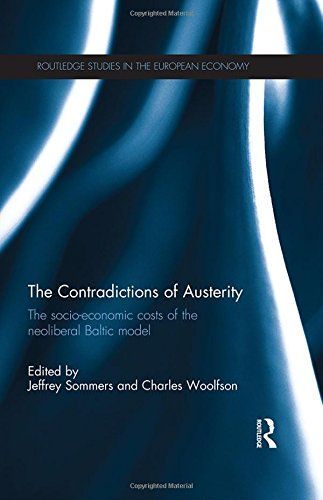
The Contradictions of Austerity The Socio-Economic Costs of the Neoliberal Baltic Model
The great financial crisis of 2008 and the ensuing global economic and financial turmoil have launched a search for "models" for recovery. The advocates of austerity present the Baltic States as countries that through discipline and sacrifice showed the way out of crisis. They have proposed the "Baltic model" of radical public sector cuts, wage reductions, labor market reforms and reductions in living standards for other troubled Eurozone countries to emulate. Yet, the reality of the Baltic "austerity fix" has been neither fully accepted by its peoples, nor is it fully a success. This book explains why and what are the real social and economic costs of the Baltic austerity model. We examine each of the Baltic States by connecting national level studies within a European and global political economy, thereby delivering comparative breadth that supersedes localized understandings of the crisis. Thus for each of the three Baltic states, individual chapters explore the different economic and social dimensions of neo-liberal post-communism and the subsequent wider global economic and financial crisis in which these newly financialized economies have found themselves especially vulnerable. The "austerity model" adopted by Baltic national governments in response to the crisis reveals the profound vulnerabilities created by their unwavering commitment to liberalized economies, not least in terms of the significant "exit" of their labor forces and consequent population loss. This book looks beyond basic financial metrics claiming a success story for the Baltic austerity model to reveal the damaging economic and social consequences, first of neo-liberal policies adopted during transition, and latterly of austerity measures based on "internal devaluation." Combined these policies undermine the possibility of longer-term recovery and even social and economic sustainability, not to mention prospects for successful integration in the now-faltering European project that has departed from its "Social Model" roots.